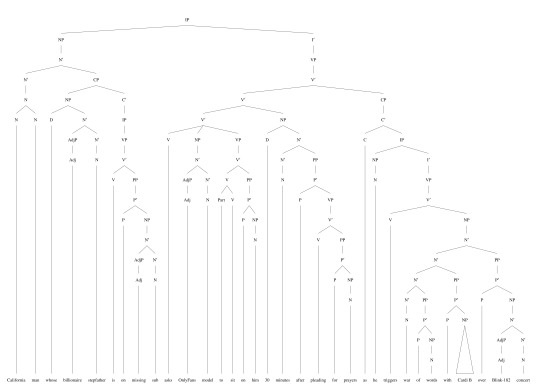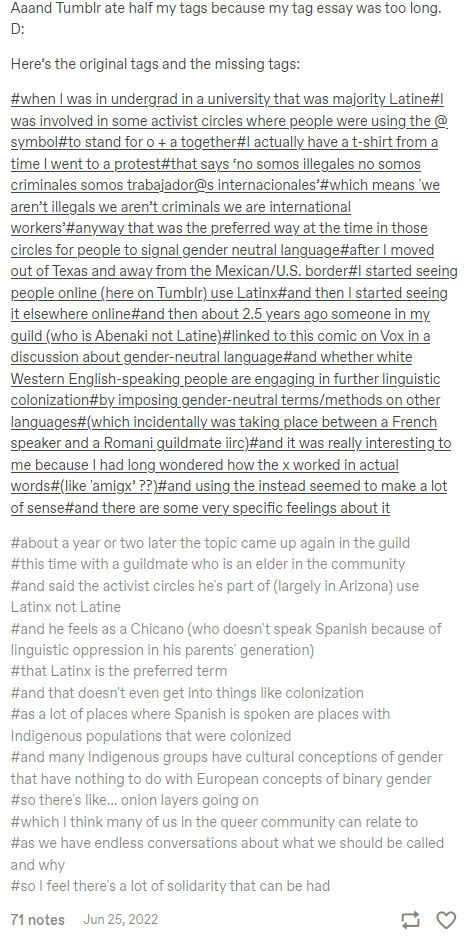#linguistic determinism
Text
Language, Thought, and Reality: The Interplay of Human Understanding
Language is more than a mere tool for communication; it's a fundamental element of human cognition that significantly shapes our perception of reality. The intricate relationship between language, thought, and reality has intrigued philosophers, linguists, and cognitive scientists for centuries. This intricate interplay not only influences how we express our ideas but also defines the very nature of our thoughts and, by extension, the way we perceive the world.
Language as a Lens to Reality
One of the most influential ideas in this realm is the Sapir-Whorf hypothesis, which posits that the structure and vocabulary of a language can mold and constrain the way its speakers think about the world. This concept comes in two flavors: linguistic determinism and linguistic relativism. Linguistic determinism suggests that language entirely determines the way we think, limiting our thoughts to what is expressible in our language. Linguistic relativism, on the other hand, holds that language influences thought but doesn't strictly determine it.
Consider, for instance, the linguistic distinction between colors. Languages vary in how they categorize and label colors. Some have more words for different shades of blue, while others may combine colors that speakers of different languages consider distinct. This variation can affect how people perceive and categorize colors. If a language doesn't have a distinct word for a certain shade, its speakers may be less likely to perceive it as a separate entity. In this way, language can serve as a lens through which we view and define our reality.
The Mind's Toolkit: Language and Concepts
Language, in its complexity, provides us with a toolkit for understanding and categorizing the world. Words are not just labels but also containers of meaning and concepts. They define boundaries, allowing us to separate, categorize, and convey information. The very presence of specific words in a language implies the importance of these distinctions to its speakers.
Furthermore, the structural components of a language, such as syntax and grammar, govern how ideas are connected and expressed. They provide a blueprint for how concepts are related within the realm of thought. Thus, language helps us not only to classify the world but also to construct our understanding of it.
The Cultural Dimension
It's important to recognize that language isn't just an individual phenomenon. It is deeply entwined with culture. The language a person speaks is often a reflection of their cultural background and can encompass shared beliefs, values, and worldviews. Cultural linguistics explores how a language's unique features emerge from and influence the culture it is embedded in.
Beyond Language
While the Sapir-Whorf hypothesis and the study of linguistic relativity highlight the significance of language in shaping thought and reality, they are not without controversy. Critics argue that thought and perception are not solely dictated by language. Concepts like non-verbal communication, universal human experiences, and innate cognitive structures challenge the idea of linguistic determinism.
In the grand scheme of philosophy, the relationship between language, thought, and reality remains an open question. Language undoubtedly plays a vital role in shaping our perception of the world, but its extent and limits continue to be topics of philosophical inquiry.
As we ponder the intricate connection between language, thought, and reality, we gain insight into the profound ways in which human beings engage with and understand the world. This philosophical exploration enriches our understanding of the human experience and broadens the horizons of cognitive science, linguistics, and cultural studies.
#philosophy#epistemology#knowledge#learning#ontology#chatgpt#education#metaphysics#psychology#Language and Thought#Language and Reality#Linguistic Relativism#Sapir-Whorf Hypothesis#Conceptual Frameworks#Perception and Language#Philosophy of Language#Cognitive Science#Reality Construction#Linguistic Determinism#Cultural Linguistics#Cognitive Whorfianism#Conceptual Boundaries#Language#Thought#linguists#Beyond Language#linguistics
11 notes
·
View notes
Text
I love the movie Arrival but it perpetuates one of the biggest myths in linguistics: that language influences how we think about time.
4 notes
·
View notes
Text
Unraveling the Sapir-Whorf Hypothesis: Exploring Language's Impact on Thought and Perception
The Sapir-Whorf Hypothesis: Exploring the Linguistic Relativity of Thought and Perception
The Sapir-Whorf hypothesis, also known as linguistic relativity, suggests that the structure and content of a language significantly influence the way its speakers perceive and think about the world. This controversial hypothesis has sparked intense debates and captivated the attention of linguists,…

View On WordPress
#cognitive processes#cross-cultural studies#cultural diversity#language and cognition#language influence#linguistic determinism#linguistic relativity#Sapir-Whorf hypothesis
1 note
·
View note
Text
Putting every other word in quotation marks when I talk about “relationships” because I don’t have the words to actually describe what I’m feeling so I need people to know that for ex I’m using the word “attraction” because that’s The Word to use but like idk if that’s what I’m actually feeling anyway Whorf was “right”
0 notes
Text
Bucchigiri honki shrine decipher and translation
Some time ago I made a post about this tablet, to exalt its coolness as a stylistic mix of arabic and japanese scripts. Upon closer look I noticed it was not random for the aesthetic, but actually real japanese sentences, in an arabic-inspired font!

So I decided to decipher it. It was fun but challenging (especially as a non-native japanese speaker!), but I managed to do it.
japanese and translation:
戦で乱れし世に 逃げぬ心で
In a world disarrayed by war, with a heart that does not flee
鍛錬を積み頂点を目指せ者共あり。
They are the people who accumulate training and aim for the top.
その名を本気人という。
They are called Honki People.
己が身に幾千の武具すら及ぬ力を宿し
Their body possesses power that a thousand armors cannot match.
その拳は火を吹く大筒の如く
Their fist is such as a cannon that spits fire
その蹴りは玉鋼の名刀をも砕いた。
Their kick shattered even the famous tamahagane* swords.
正々堂々 一途な(る?)生き—
A "fair and square", singleminded (way of) life—
民の心を打つも—
They strike even the People's hearts—
*traditional japanese steel made from iron sand and used in swords
BONUS:
This banner from episode 7. Once again japanese, but the katakana part really looks like arabic imo if you didn't know better! very cool

"合同コンバット" (gôdô combatto)
Joint combat
A pun on "合同コンパ" (gôdô compa), "joint party / mixer"; what Arajin thought he was getting into.
#bucchigiri#bucchigiri?!#animanga#anime#linguistics tag#moralgayness#god being familiar with the arabic alphabet only complicated it i was automatically reading 'ت' (t) with those 'で' in the first sentence#and that fucking '一' from '一途' in the penultimate sentence that inexplicably has 2 dots above it?#it was hard to decipher '一途' btw but i noticed the line is higher than the rest of the words which helped me determine it could only be 一#despite the 2 dots.. pretty 😎 of me ngl
82 notes
·
View notes
Text
lowkey i think the clones would not have a strong culture of like. consistent place names and the like. names to them are personal and may or may not carry significant history, but when it comes to naming places--well. they have no place. they don't settle anywhere. their history doesn't bleed into any earth and it isn't carved into any rivers or mountains. any settlement or place they name i think would be more literal since I think they'd have a more literal than conceptual language (and notice how their language is unnamed [for safety reasons]).
so their village could easily be Blue River Village because it happens to be by a blue river. It could be Settlement A until they come up with something else. It could also be 501st village. they might choose a name from their language. but place names convey as much as they do because they have the benefit of sheer time on their side--years, decades, centuries of conflicts and compromises and movements and changes from all sorts of people. but they're one people with a linear and brutally short history.
#ch posts#meta#star wars#the clone wars#clonelang#ch reads#see bc irl there's placenames that literally convey entire histories#morals and stories and fables#and its so cool#but partly why thats possible is bc of how the morphemes within these languages work#and idk im not going that deep on their language kajshdlfaks#but their language is a very efficient and straight forward one!#but ofc there's room for abstraction there'd have to be#i dont want to do like a. linguistic determinism thing where bc they dont have X concept they think like Y#cause thats not always the case and tbh their first languages would be Basic anyways
56 notes
·
View notes
Note


[ID: Huge syntax tree for the sentence "California man [whose billionaire stepfather is on missing sub] asks OnlyFans model to sit on him 30 minutes after pleading for prayers, as he triggers war of words with Cardi B over Blink-182 concert". The tree is very broad and has many layers, indicating the amount of time, energy, and stress that must've gone into making it.]
#syntax#linguistics#trees#syntax tree#asks#uncertain#big tree#honestly this one's just so massive I'm 99% sure I got something wrong but I do not have the energy to triple check#Also uncertain because I went back and forth on what to do with “whose”#should the NP its the determiner for be spec-CP like other wh-words in English#should it be spec-IP because its the subject of the subordinate clause#like hell if I know#ok I definitely should know the answer but its friday I am tired and this is just for fun
13 notes
·
View notes
Text
everyone has to know about my problems but i am not under any obligation to learn about others' problems. this is a totally 100% fair and not-hypocritical way to view both domestic and global politics. there can be no disastrous result from shutting my ears to the plight of others while expecting those very people to hear me cry. "do as i say, not as i do" is not a shitty worldview to have. nope.
(this is all sarcastic btw)
#angel posts#and like the weirdass issues with linguistic determinism on this site#every single person thinks theyre immune to this way of thinking#like. lmao#drafts
8 notes
·
View notes
Text
i wish that more pieces of fictional media paid attention to what kind of spelling/grammar/pronounciation/vocabulary mistakes a character would make based on where they're from. or at the very least look up the word in the original language to make sure it's feasible they'd get it wrong in english. like, please just post in some subreddit or something asking what are common mistakes for english second language speakers from their country, i beg you it's not that hard
#for example a lot of swedes will say that 'you learn someone' rather than 'teach someone'#because swedish has the same word for learn and teach - lära#and the pronouns used determine what it means#i know i'm probably the only one that gets properly bothered by this#but everytime i get told a character is swedish and they procede to have a german/dutch/fantasy accent i die inside#linguistics#writing#oax's screaming void
10 notes
·
View notes
Text
Linguists when they write an article

6 notes
·
View notes
Note
Hi! I like your blog. It's inclusive, helpful, and just generally has a warm vibe. And I read your essay-- to answer your question, Latinx started in the same way as Latin@ in that it was a symbolic written representation of inclusiveness and the pronunciation is not literal. Most Spanish-speaking communities that use Latinx today pronounce it with the -e suffix.
And while I love how the comic simply explains what can be complex concepts for monolingual English speakers, I do have a bone to pick with how the comic tacitly dismisses Latinx as a white-washed colonizer term. The artist uses soft language in discouraging it, so the dismissal only becomes explicit when you notice that all the linked readings are anti-Latinx with no Latinx perspectives.
Latinx's exact origins/creator is unclear. Although definitely used in and by Latin American circles, Latinx may very well have been created by a white Latinx. It may have even been created by a white Latinx with no or little understanding of Spanish. But if a term is created to describe oneself, is it self-colonizing? Where is the difference in a person refusing to use correct pronouns because it "imposes beliefs about genders" and refusing to use Latinx because it "imposes English-speaking norms on other cultures"? It's possible to be Latinx and only speak English and they deserve a right to self-identify as much as anyone else.
While anglocentrism and US imperialism in general are Problems that Spanish has to contend with globally, it's also important to remember that Spanish is a colonizer language, too. So while some may perceive it as linguistic submission to use Latinx in an English-dominated culture, for indigenous folks in a Spanish-dominated culture it can be a form of linguistic resistance. Though, at least ime, indigenous folk are just as likely to reject all disambiguations of Latinx/e/@ as its origins are a matter of recorded history (Michel Chevalier, late 1800s) which show the explicit racist and Eurocentric motivations behind its creation.
But the comic wasn't about rejecting Latin@/e. It was about rejecting Latinx. I don't care about what term gets used, but I do care that self-determined labels are respected and Latinx should not be discouraged in the same breath that Latine, Latin@, or Latino/a is.
Hi, Anon! Thank you for the kind words about my blog. :) And thank you for sharing your thoughts and perspectives about Latine and Latinx.
I was worried that the post would get circulated without the tags, but for context, here is a screen grab of the original post that has the tags pasted into the post and the continued of the "essay" in the actual tags:

[ Image Description: A screenshot of the original post. Below is a transcription of the tags involved. End Image Description ]
Aaand Tumblr ate half my tags because my tag essay was too long. D:
Here’s the original tags and the missing tags:
#when I was in undergrad in a university that was majority Latine#I was involved in some activist circles where people were using the @ symbol#to stand for o + a together#I actually have a t-shirt from a time I went to a protest#that says ‘no somos illegales no somos criminales somos trabajador@s internacionales’#which means 'we aren’t illegals we aren’t criminals we are international workers’#anyway that was the preferred way at the time in those circles for people to signal gender neutral language#after I moved out of Texas and away from the Mexican/U.S. border#I started seeing people online (here on Tumblr) use Latinx#and then I started seeing it elsewhere online#and then about 2.5 years ago someone in my guild (who is Abenaki not Latine)#linked to this comic on Vox in a discussion about gender-neutral language#and whether white Western English-speaking people are engaging in further linguistic colonization#by imposing gender-neutral terms/methods on other languages#(which incidentally was taking place between a French speaker and a Romani guildmate iirc)#and it was really interesting to me because I had long wondered how the x worked in actual words#(like 'amigx’ ??)#and using the instead seemed to make a lot of sense#and there are some very specific feelings about it
#about a year or two later the topic came up again in the guild #this time with a guildmate who is an elder in the community #and said the activist circles he's part of (largely in Arizona) use Latinx not Latine #and he feels as a Chicano (who doesn't speak Spanish because of linguistic oppression in his parents' generation) #that Latinx is the preferred term #and that doesn't even get into things like colonization #as a lot of places where Spanish is spoken are places with Indigenous populations that were colonized #and many Indigenous groups have cultural conceptions of gender that have nothing to do with European concepts of binary gender #so there's like... onion layers going on #which I think many of us in the queer community can relate to #as we have endless conversations about what we should be called and why #so I feel there's a lot of solidarity that can be had
I strongly support self-determination in labels, terms, etc. used in our communities, and I definitely support people choosing to refer to themselves as Latinx.
#asks#anon#Latinx#Latine#Latin@#language#self determination#for clarification the elder is in his 70s#and the discussion about about white Western English-speaking people engaging in further linguistic colonization#by imposing gender-neutral terms/methods on other languages#was not about Latinx at all iirc; it was a convo about a guildmate getting frustrated with their French class#because of misgendering iirc and they made some generalized comments about all languages with gendered nouns#and some guildmates who speak languages with gendered nouns (including French and other languages) got involved in the conversation#and there was some frustration from people from cultures where there are gendered nouns about how people from outside of those cultures#sometimes try to come in and demand changes to those languages instead of listening to people from those cultures#and how best to support people who are part of a culture in their efforts to engage with language norms#and at some point the comic was shared#and I definitely agree that the sources cited by the comic are not very helpful#for the reasons anon mentioned
17 notes
·
View notes
Text
Misc. OC thought of the day:
Dizzy would genuinely enjoy math and be really good at it--it's just that no one's ever bothered to properly teach her. She came into existence with basically all of her background knowledge from her cartoon self, which included stuff like basic arithmetic (or at least addition and subtraction), but Joey's plans for her were solely based on being a performer and singing and dancing for people (plus he's not exactly the type to sit down and teach her)
That being said, if you sat Dizzy down with a bunch of those Mad Minute math worksheets and timed her, she'd absolutely love it. Challenge her! Get her to use her brain in a way she's not accustomed to! It's enrichment!
Or better yet, show her the Schoolhouse Rock series. Learning her times tables AND getting to sing along to a fun little song? Best of both worlds baby!
#Dizzy#my ocs#batim oc#dizzy writes#(that's not a confusing tag At All lmao)#as someone who was temporarily obsessed with a single very specific type of math problem back in elementary school#(I genuinely can't remember exactly what it was but? something to do with trying to determine an unknown variable assigned to a letter?)#(like Very Very basic pre-algebra kind of??? idk)#and would take my notes out at recess and write and solve my own math problems *for fun*#yes this is lowkey me projecting lmao#also the Schoolhouse Rock thing#I fucking LOVED that series as a kid#we have (had?) the whole collection on DVD#and to this day the Multiplication series is what got me to remember my times tables#by being able to sing them to the tune#also the Grammar series was where I first learned abt categories of words#which has come in surprisingly handy now that I've been taking Linguistics#but yeah anyways. Dizzy can be good at math as a treat#leaning more into the 'High Int Low Wis' characterization I guess hdjsbdhd#EDIT: FACTORING. I'M 90% SURE IT WAS FACTORING#Dizzy Dee
4 notes
·
View notes
Text
I think I spent about 8-10 hours on my syntax homework over the past two days, and that's NOT including the time I spent reading 6 chapters of a textbook to try to understand LFG
And honestly, I'm not even mad. It's so interesting. Also I am the most stubborn person in the world, and I have decided that I simply will be good at syntax. If I have to go a little bit insane in the process, so be it ¯\_(ツ)_/¯
#linguistics#also very much want to impress my syntax instructor#hoping the reaction will be#wow she put in a lot of effort to learn more outside of class and clearly cares about the material#and not#wow this girl is a fucking idiot this is not only unnecessary but also wrong#I'm determined to get a good grade in Being a Grad Student#which is something that is both normal to want and possible to achieve#grad blogging
2 notes
·
View notes
Text
Informed Choice and Its Implications for Connecticut's ABI Waiver and MFP Programs.
https://www.ctbraininjury.com/post/informed-choice-implications-connecticut-abi-waiver-mfp-programs
Don't miss out on this insightful exploration of informed choice and its implications for Connecticut's ABI Waiver and MFP programs. Empower yourself with knowledge that can help improve the lives of individuals with disabilities and those transitioning from institutional to community-based care settings. Read the article now!
informed choice, patient autonomy, healthcare, medical ethics, information overload, cultural barriers, linguistic barriers, shared decision-making, health literacy, culturally competent care, Connecticut, ABI Waiver, MFP program, independence, self-determination, community integration, personalized support, support services, cognitive impairments, communication impairments, decision support, collaboration, advocacy, patient-centered approach, healthcare delivery
ABI Resources is a reputable organization that provides exceptional support to individuals and families in collaboration with various government agencies and community service providers, including the Connecticut Department of Social Services DSS, COU Community Options, the Connecticut Department of Mental Health and Addiction Services DMHAS, Connecticut Community Care CCC CCCI Southwestern Connecticut Area on Aging SWCAA, Western Connecticut Area on Aging WCAAA, Allied Community Resources ACR, Access Health, and United Services. ABI Resources collaborates care with renowned institutions such as UCONN, Yale, and Hartford. As a community care and supported living provider, ABI Resources is dedicated to offering high-quality and personalized care to enhance the lives of those it serves. Medicaid MFP Money Follows the person program / ABI Waiver Program / PCA waiver.
https://twitter.com/ABIresources
https://www.youtube.com/@ABI.RESOURCES-CT-ABI-MFP-CARE/videos
https://www.instagram.com/a.b.i._resources/
https://www.facebook.com/ABIresourcesCT
#Informed Choice and Its Implications for Connecticut's ABI Waiver and MFP Programs.#https://www.ctbraininjury.com/post/informed-choice-implications-connecticut-abi-waiver-mfp-programs#Don't miss out on this insightful exploration of informed choice and its implications for Connecticut's ABI Waiver and MFP programs. Empowe#informed choice#patient autonomy#healthcare#medical ethics#information overload#cultural barriers#linguistic barriers#shared decision-making#health literacy#culturally competent care#Connecticut#ABI Waiver#MFP program#independence#self-determination#community integration#personalized support#support services#cognitive impairments#communication impairments#decision support#collaboration#advocacy#patient-centered approach#healthcare delivery#ABI Resources is a reputable organization that provides exceptional support to individuals and families in collaboration with various gover#including the Connecticut Department of Social Services DSS
0 notes
Video
youtube
incredible video on recognizing your emotions
#saf#video#I feel so seen#T_T#I love her - her talk on toilet laws is on point#personally i use linguistics to determine mood but... er... that leaves my own
0 notes
Text
Morphosyntax pickup lines
"Hey baby, are you a strong head, because you attract me."
"Are you into government and binding?"
"Are you a ditransitive verb, because you're assigning me dative case."
"Wanna be the clitic to my morpheme?"
"Not to be too obviative about it, but I'd like to be proximate to you."
"Let's make like a VP and split."
"So can I see your underlying form?"
#i'm so sorry#in my defence#you will notice that i did not once mention determiner phrases#or prepositional phrases#or determiner phrases that contain prepositional phrases#linguistics#syntax#morphosyntax#v-day
1 note
·
View note